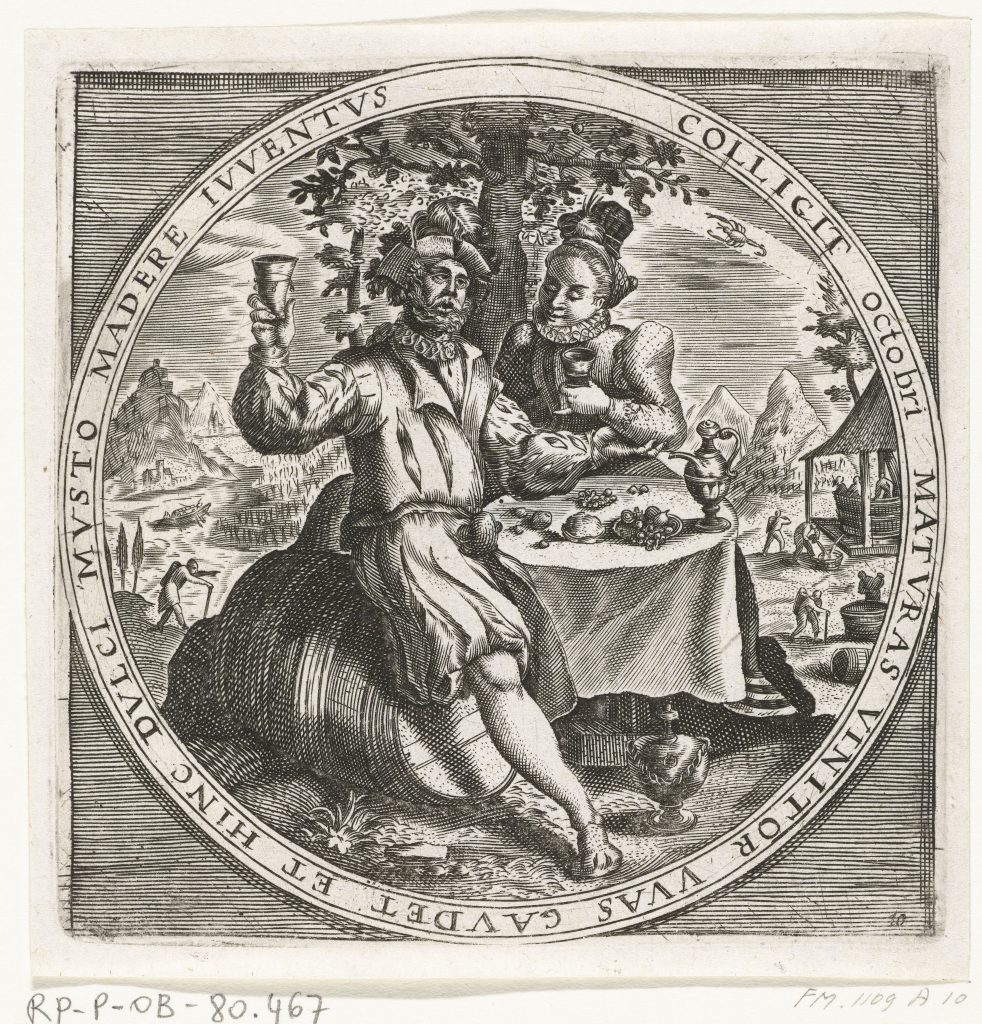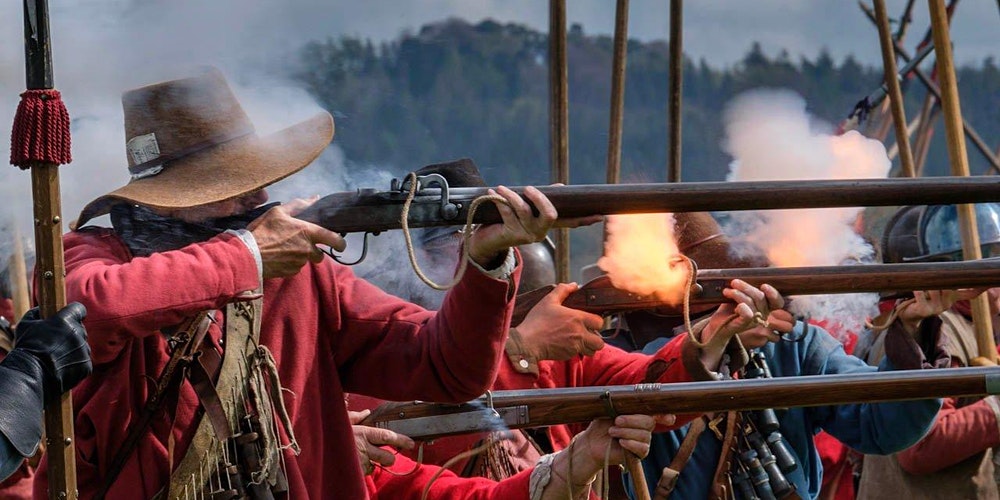
17th Century Almanac for May
The 17th Century almanac for May – ‘Queen of Months!’.
17th Century Life and Agricultural Labour
In the 17th Century, May was the beginning of summer. Lambs and calves were weaned and separated from their mothers. The ewes and cows were driven to the commons, heaths and moors to graze on the fresh spring grass, and to be milked. Grazing on the hay meadows stopped to allow the grass to grow for winter fodder.
Barns were mucked out and the muck spread on the fields. Families of women and children were employed in weeding the wheat or rye strips – there was no weed killer – and removing the endless stones that naturally surfaced. Swifts began to arrive, bees swarmed. And milkmaids and ploughmen were allowed an hour’s rest after midday dinner, until harvest started.
Whitsuntide Maypoles, Ministers & Moons
After the traditional cold spell of the ‘Ice Saints’ in the middle of the month, the merry month of May ended with Whitsuntide. This was a feast day, traditionally a time of church wakes, May games, wrestling and cudgel-playing. It had also been a time for maypoles, dancing and love.
However, there were many who disapproved. Maypoles were a particular source of tension, described in a Parliamentary ordinance of 1644 as, ‘a Heathenish vanity, generally abused to superstition and wickedness’. This was a time when many parish churches in England had both an officiating vicar and a lay Puritan minister. Sunday and feast day services were followed by firebrand psalms and prayers.
Whitsun (or Pentecost) falls on the seventh Sunday after Easter, on 19 May this year. The modern UK Spring Bank Holiday is not quite the same affair. For those looking to the heavens, we will have a new moon on the 8th, full on 23 May. This will be an early Flower Moon, the last before the Solstice.
Mutiny, Slavery & Restoration
Sadly, May was also the beginning of the campaigning season. Many would have left their homes or billets to march away, perhaps never to return. It is also the month that saw the final surrender of Newark, on the instructions of the King, and the end of the Leveller dream.
On the 17th of May 1649, Cromwell had the Burford Martyrs shot and their fellow New Model Army mutineers transported to work the new sugar plantations of Barbados, as indentured servants alongside Royalist prisoners and enslaved Africans.
But the 29th of May is Oak Apple Day – the day commemorating the restoration of Charles II. If you are near Castleton in the Peak District, or St Neot in Cornwall, don’t miss the traditional ceremonies of hoisting flowers and oak bows up the church towers. It is perhaps a day we should better celebrate as the beginning of the path to constitutional monarchy and the end of the British Civil Wars.
Whether you are weeding, milking or mucking out, I wish you a merry May – ‘while all that lives enjoys the birth of frolic Summer’s laughing mirth.’ If you can, take that hour’s rest. Harvest (and a book launch) is coming.
Follow & Read More
I will post more of the 17th Century Almanac and yearly activity in Early Modern Britain, next month. If you would like to receive an email notification of the next post, please click the button to follow.
In the meantime, this website includes more posts and articles about life in 17th Century Britain, Europe and the Americas at Historical Notes and Maps. These include notes and pages on the impact of the Little Ice Age and The General Crisis of the 17th Century. They include articles on the English Revolution and Great Rebellion. They also include Pike and Shot Warfare and battles of the English Civil War.
You can also find more posts on Early Modern history, Living History and re-enactment at News & Events. You may also wish to read about the English Civil War history talks and battlefield walks I give.
See More & Share
Alternatively, check out Facebook, Instagram, Twitter or YouTube for more posts. These include notes from my historical research, Living History and English Civil War fiction. They also include upcoming events and opportunities to meet. Or, follow on social media at #DividedKingdomBooks or #EnglishCivilWarFiction on:
If you want even more, join us in the Divided Kingdom Readers’ Club. Clubmen receive FREE access to exclusive short stories, email and more. Click the link to sign up and join us.
Spread the Word
If you like what you see, please click, share and spread the word via email or your social media on:



